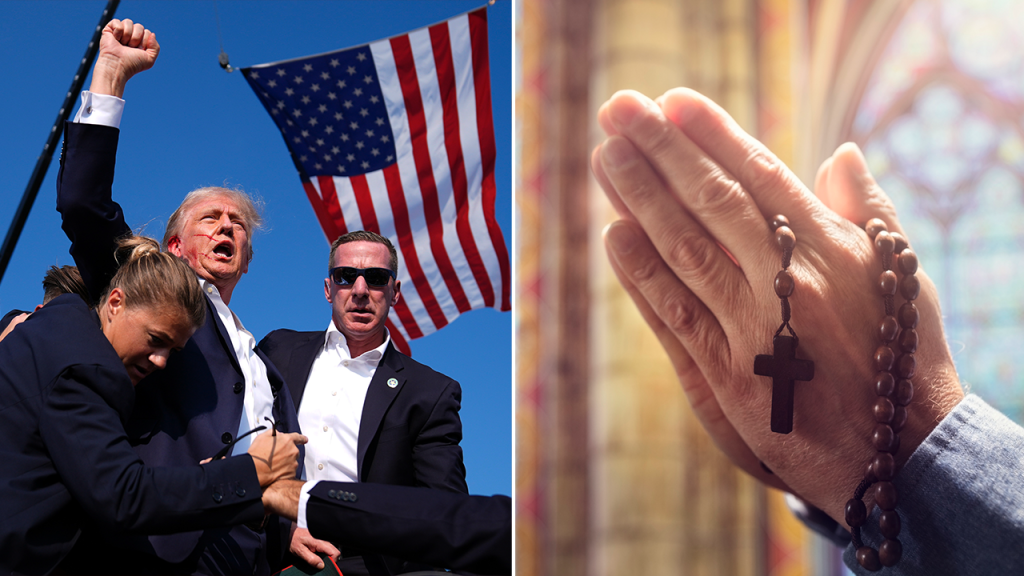A Cautious Interfaith Outlook on the Second Trump Administration
As the second Trump administration begins, faith leaders across Christian, Jewish, and Muslim communities express a mixture of cautious optimism and wary anticipation. While some express hope for positive change in areas such as religious freedom and international relations, others harbor concerns about potential setbacks in civil liberties and social harmony. This nuanced perspective underscores the complexity of navigating the political landscape within the context of deeply held religious beliefs.
Within the Jewish community, Rabbi Jo David highlights the diverse range of reactions, noting both optimistic and deeply concerned sentiments. This division reflects the varying priorities and interpretations of Trump’s previous actions and pronouncements. Similarly, Haris Tarin of the Muslim Public Affairs Council describes a "skeptical optimism," suggesting a desire for positive developments while acknowledging the potential for disappointment.
Christian leaders, such as Pastor Lorenzo Sewell and Pastor Samuel Rodriguez, offer more overtly optimistic views. Sewell posits that Trump has the potential to achieve historical greatness if he governs righteously and utilizes resources appropriately. Rodriguez anticipates a renewed focus on protecting religious freedom and empowering faith-based organizations. He envisions an administration that values faith communities not merely as tolerated entities but as integral pillars of American society.
These hopes and anxieties converge around specific policy areas. For the Jewish community, Rabbi Abraham Cooper emphasizes the urgent need to combat antisemitism, particularly its manifestation on social media and college campuses. He also stresses the importance of addressing the "Hamas narrative" and reevaluating the Biden administration’s approach to Iran. Furthermore, Cooper advocates for building upon the Abraham Accords to foster normalization between Israel and Arab nations.
Within the Muslim community, Tarin articulates three primary hopes. First, he seeks assurance that the travel restrictions imposed by the previous Trump administration on individuals from certain Muslim-majority countries will not be reinstated. Second, he emphasizes the protection of civil rights and liberties for all Americans, including American Muslims. Third, he expresses a desire for a peaceful resolution to the ongoing conflict in the Middle East, particularly in Gaza. Tarin also suggests the potential benefits of adopting elements of the Biden administration’s strategy to combat Islamophobia.
These varied perspectives reveal a delicate balancing act between hope and apprehension. Faith leaders are cautiously optimistic that the incoming administration will address their concerns and advance their priorities, while remaining mindful of potential challenges and setbacks. Their nuanced outlook underscores the complexities of faith and politics in a diverse and often polarized society.
The common thread weaving through these diverse viewpoints is the desire for a government that respects and protects religious freedom, promotes peace and understanding both domestically and internationally, and upholds the rights and liberties of all citizens. Whether these hopes will be realized remains to be seen, but the cautious optimism expressed by faith leaders reflects a persistent belief in the possibility of positive change.
The Trump administration’s actions will ultimately determine whether these hopes materialize or whether the concerns prove to be justified. The interfaith community will be closely watching to see how the new administration addresses the complex issues that impact their communities and the nation as a whole.
This period of transition and uncertainty highlights the critical role of interfaith dialogue and cooperation. By engaging in respectful communication and working together towards common goals, faith communities can navigate the challenges ahead and contribute to a more just and harmonious society.
The future holds both potential and peril, and the faith leaders’ cautious optimism serves as a reminder of the need for vigilance, engagement, and a commitment to upholding the values of justice, compassion, and respect for all. Their perspectives offer a valuable lens through which to understand the complex interplay of faith and politics in the years to come.
The incoming administration has the opportunity to address the hopes and concerns expressed by these faith leaders and to foster an environment of mutual respect and understanding. Whether they choose to seize this opportunity will have a profound impact on the lives of millions of Americans and the future of the nation.


